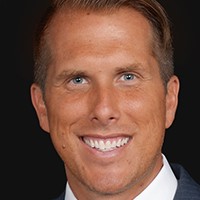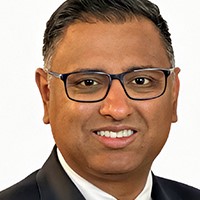The Rise of Big Data and What it Means for Today’s Leaders

The Rise of Big Data and What it Means for Today’s Leaders
In 2016, we interviewed Shane Greenstein, author of How the Internet Became Commercial. As he laid out his arguments, it became evident that the big data revolution was imminent. The professor noted that the internet contributed significantly to data collection in the business world. Although at the time it was mainly used to evaluate performance.
Fast forward two years later, big data analysis is now a worldwide tool for driving business forward.
What is big data?
A term coined in the 1990s, ‘big data’ pertains to large sets of information that are collected, stockpiled, and analyzed. In big data language, there are three Vs to help understand data collection: volume, velocity, and variety. In order for information to become powerful, it has to come in huge volumes from different sources. Data also arrives in a high velocity in what is called data streaming. It can allow companies to analyze data as it arrives and make quick decisions based on the information. Lastly, data can come in a variety of formats: structured, semi-structured and unstructured.
Structured data comes in alphanumeric form in a defined length. They’re found in traditional machine-or human-generated databases and are easier to interpret. Information Age explains that new technologies make data analytics more ‘user-friendly’, which contributed to big data’s arrival into the mainstream. GPS falls under structured data, as well as the biodata inputted to a computer when you fill out an online survey. Semi-structured data, while not as defined as the first type, still has organizational properties that can be interpreted by traditional processes.
Meanwhile, an estimated 90% of existing big data falls under the unstructured format, which can be found predominantly in social media. E-mails, tweets, photos, sound clips, blog posts, and other multimedia content on the internet are mined and analyzed by companies worldwide. Maryville University relayed findings that there will be 180 trillion gigabytes worth of data to be filed and studied by 2025. This has resulted in data analytics becoming a very popular career choice in recent years.
How to use big data?
For the leaders of today’s world, what matters most is not the volume of data, but how it is used. The information can be used by leaders implementing cost-cutting and time-saving solutions. Such strategies can lead to an improvement in overall organizational efficiency. For instance, banks turn to big data analysis to detect and intercept cases of fraud, while schools monitor student progress through different assessment tools. Modern Diplomacy adds that government uses for big data can range from predicting the traffic to preventing terrorist attacks and anticipating natural disasters.
Being updated can help companies stay ahead of the curve, create products that will sell, and make better business decisions. Giant firms like Starbucks analyze weekly transactions to constantly improve service and drive marketing campaigns. Their experimentation with big data is paying off as the coffee magnate is one of the most recognizable brands in the world.
However, to quote Voltaire (or Spiderman’s uncle), “With great power comes great responsibility.” In light of Facebook’s recent privacy breach, companies have to be transparent about their use of big data. Ad Week highlights that the ethical use of data comes from the top down and should start with the leaders of the organization. Leaders need to set the tone when it comes to responsible data use. They must ensure that both the company and customer interest are being protected. They can enlist the help of data scientists to develop programs like blockchain technology to prevent other companies from stealing sensitive data.
Most of all, leaders should be open to consumers about what they intend to do with the collected information. After all, a business will not last when it loses its consumers’ trust.
We hope you found this article about “The Rise of Big Data and What it Means for Today’s Leaders” helpful. If you have questions or need expert tax or family office advice that’s refreshingly objective (we never sell investments), please contact us or visit our Family office page or our website at www.GROCO.com. Unfortunately, we no longer give advice to other tax professionals gratis.
To receive our free newsletter, contact us here.
Subscribe to our YouTube Channel for more updates.

Alan Olsen, is the Host of the American Dreams Show and the Managing Partner of GROCO.com. GROCO is a premier family office and tax advisory firm located in the San Francisco Bay area serving clients all over the world.
Alan L. Olsen, CPA, Wikipedia Bio

GROCO.com is a proud sponsor of The American Dreams Show.

The American Dreams show was the brainchild of Alan Olsen, CPA, MBA. It was originally created to fill a specific need; often inexperienced entrepreneurs lacked basic information about raising capital and how to successfully start a business.
Alan sincerely wanted to respond to the many requests from aspiring entrepreneurs asking for the information and introductions they needed. But he had to find a way to help in which his venture capital clients and friends would not mind.
The American Dreams show became the solution, first as a radio show and now with YouTube videos as well. Always respectful of interview guest’s time, he’s able to give access to individuals information and inspiration previously inaccessible to the first-time entrepreneurs who need it most.
They can listen to venture capitalists and successful business people explain first-hand, how they got to where they are, how to start a company, how to overcome challenges, how they see the future evolving, opportunities, work-life balance and so much more..
American Dreams discusses many topics from some of the world’s most successful individuals about their secrets to life’s success. Topics from guest have included:
Creating purpose in life / Building a foundation for their life / Solving problems / Finding fulfillment through philanthropy and service / Becoming self-reliant / Enhancing effective leadership / Balancing family and work…

MyPaths.com (Also sponsored by GROCO) provides free access to content and world-class entrepreneurs, influencers and thought leaders’ personal success stories. To help you find your path in life to true, sustainable success & happiness. It’s mission statement:
In an increasingly complex and difficult world, we hope to help you find your personal path in life and build a strong foundation by learning how others found success and happiness. True and sustainable success and happiness are different for each one of us but possible, often despite significant challenges.
Our mission at MyPaths.com is to provide resources and firsthand accounts of how others found their paths in life, so you can do the same.
Chad Willardson – Teaching Kids Values
Children need to be taught about the uses of money; how to spend it; how to make it; even how to invest it. “How is that possible?” Is the question that many people pose. Chad Willardson describes how parents can effectively teach their children how to make and use money. Episode Transcript of: Chad…
Avoid Tax Audit Tips 4, 5, & 6 (of 10)
Avoid Tax Audit, Tips 4, 5, & 6 (of 10) From our series of the top 10 ways to avoid a tax audit, we thought we would go into greater detail as to how our list was created and delve into each suggestion. Today we will address the top three tips from our article posted…
Heeten Doshi – The New Age of Investing
What is it like to start a business from scratch. Heeten Doshi describes his experience with learning the ins and outs of business as he started his Hedge Fund. Listen as he tells how the market works and how hedge funds play into it. Interview Transcript, Heeten Doshi – The New Age of Investing: …
Elliot Omanson – Deploying Success
Have you ever been confused with what career path you should take? Elliot Omanson know exactly what that was like. From one career to another until he became the CEO of OWLFI (a financial advisory institution). Listen as he describes his success path. Interview Transcript, Elliot Omanson – Deploying Success: Alan Olsen: Welcome to today’s…




